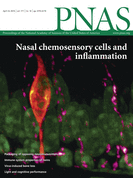- A
- A
- A
- ABC
- ABC
- ABC
- А
- А
- А
- А
- А
- HSE University
- Faculties
- Faculty of Social Sciences
- School of Psychology
- News
- Automatic ultrarapid activation and inhibition of cortical motor systems in spoken word comprehension – New publication in PNAS
-
Education
-
The School
- About
-
Laboratories
-
- The Scientific-Educational Laboratory of Ability Psychology
- Center for Sociocultural Research
- International Laboratory of Positive Psychology of Personality and Motivation
- Laboratory for Cognitive Research
- Cognitive Psychophysiology Laboratory
- Vision Modelling Laboratory
- Laboratory for the Neurobiological Foundations of Cognitive Development
-
- Partners
- Staff Members
- International Cooperation
Phone: +7 (495) 772-95-90 *15366
Email: dekpsy@hse.ru
Address: 101000, Moscow, Armyanskiy per. 4, c2
Address for correspondence: 20 Myasnitskaya Ulitsa Moscow 101000 (School of Psychology)
In press
Popyvanova A., Pomelova E., Bredikhin D. et al.
IEEE, 2024.
Goshin M. E., Grigoryev D., Sorokin P. S.
Frontiers in Psychology. 2025. No. 16. P. 1-10.
W. Joseph MacInnes, Zhozhikashvili N., Feurra M.
In bk.: First International Conference, AIiH 2024, Swansea, UK, September 4–6, 2024, Proceedings, Part II. Artificial Intelligence in Healthcare. LNCS, volume 14976. Vol. 14976. Springer, 2024. P. 221-234.
Ivanova M., Germanova K., Petelin D. et al.
Biorxiv. 005140. Cold Spring Harbor Laboratory, 2024
The School promotes cutting-edge research, multidisciplinary studies, education in English. We are increasing the number of courses in English all the time and have started two English-speaking Master’s Programs. Our researchers have access to Eye trackers, TMS, multi-channel EEG, MEG and fMRI techniques.
The School also aims to train psychologists, who can apply their knowledge in the fields of economics, banking, human resources management, organizational development, ecopsychology and team-building.
Phone: +7 (495) 772-95-90 *15366
Email: dekpsy@hse.ru
Address: 101000, Moscow, Armyanskiy per. 4, c2
Address for correspondence: 20 Myasnitskaya Ulitsa Moscow 101000 (School of Psychology)

Automatic ultrarapid activation and inhibition of cortical motor systems in spoken word comprehension – New publication in PNAS
 Shtyrov, Y., Butorina, A., Nikolaeva, A., & Stroganova, T. (2014). Automatic ultrarapid activation and inhibition of cortical motor systems in spoken word comprehension. Proceedings of the National Academy of Sciences. doi: 10.1073/pnas.1323158111
Shtyrov, Y., Butorina, A., Nikolaeva, A., & Stroganova, T. (2014). Automatic ultrarapid activation and inhibition of cortical motor systems in spoken word comprehension. Proceedings of the National Academy of Sciences. doi: 10.1073/pnas.1323158111Significance
The mechanisms through which our brain generates complex cognitive percepts from simple sensory and motor events remain unknown. An important question is whether the basic brain structures controlling movements and perceptions directly participate in higher-order cognitive processes such as language comprehension. Using neurophysiology, we found ultrarapid (starting at ∼80 ms) activations in the human motor cortex in response to unattended action-related verbs and nouns, with words related to different body parts activating corresponding body representations. Accompanying this category-specific activity was activation suppression by words with area-incompatible meaning, demonstrating operation of the neurophysiological principles of lateral/surround inhibition in language processing. These instant activations and deactivations emerging for words of different types in the absence of attention advocate automatic involvement of neural sensorimotor circuits in language comprehension.
Abstract
To address the hotly debated question of motor system involvement in language comprehension, we recorded neuromagnetic responses elicited in the human brain by unattended action-related spoken verbs and nouns and scrutinized their timecourse and neuroanatomical substrates. We found that already very early on, from ∼80 ms after disambiguation point when the words could be identified from the available acoustic information, both verbs and nouns produced characteristic somatotopic activations in the motor strip, with words related to different body parts activating the corresponding body representations. Strikingly, along with this category-specific activation, we observed suppression of motor-cortex activation by competitor words with incompatible semantics, documenting operation of the neurophysiological principles of lateral/surround inhibition in neural word processing. The extremely early onset of these activations and deactivations, their emergence in the absence of attention, and their similar presence for words of different lexical classes strongly suggest automatic involvement of motor-specific circuits in the perception of action-related language.
- About
- About
- Key Figures & Facts
- Sustainability at HSE University
- Faculties & Departments
- International Partnerships
- Faculty & Staff
- HSE Buildings
- Public Enquiries
- Studies
- Admissions
- Programme Catalogue
- Undergraduate
- Graduate
- Exchange Programmes
- Summer Schools
- Semester in Moscow
- Business Internship
-
https://elearning.hse.ru/en/mooc/
Massive Open Online Courses
-
https://www.hse.ru/en/visual/
HSE Site for the Visually Impaired
-
http://5top100.com/
Russian Academic Excellence Project 5-100
- © HSE University 1993–2025 Contacts Copyright Privacy Policy Site Map
- Edit


